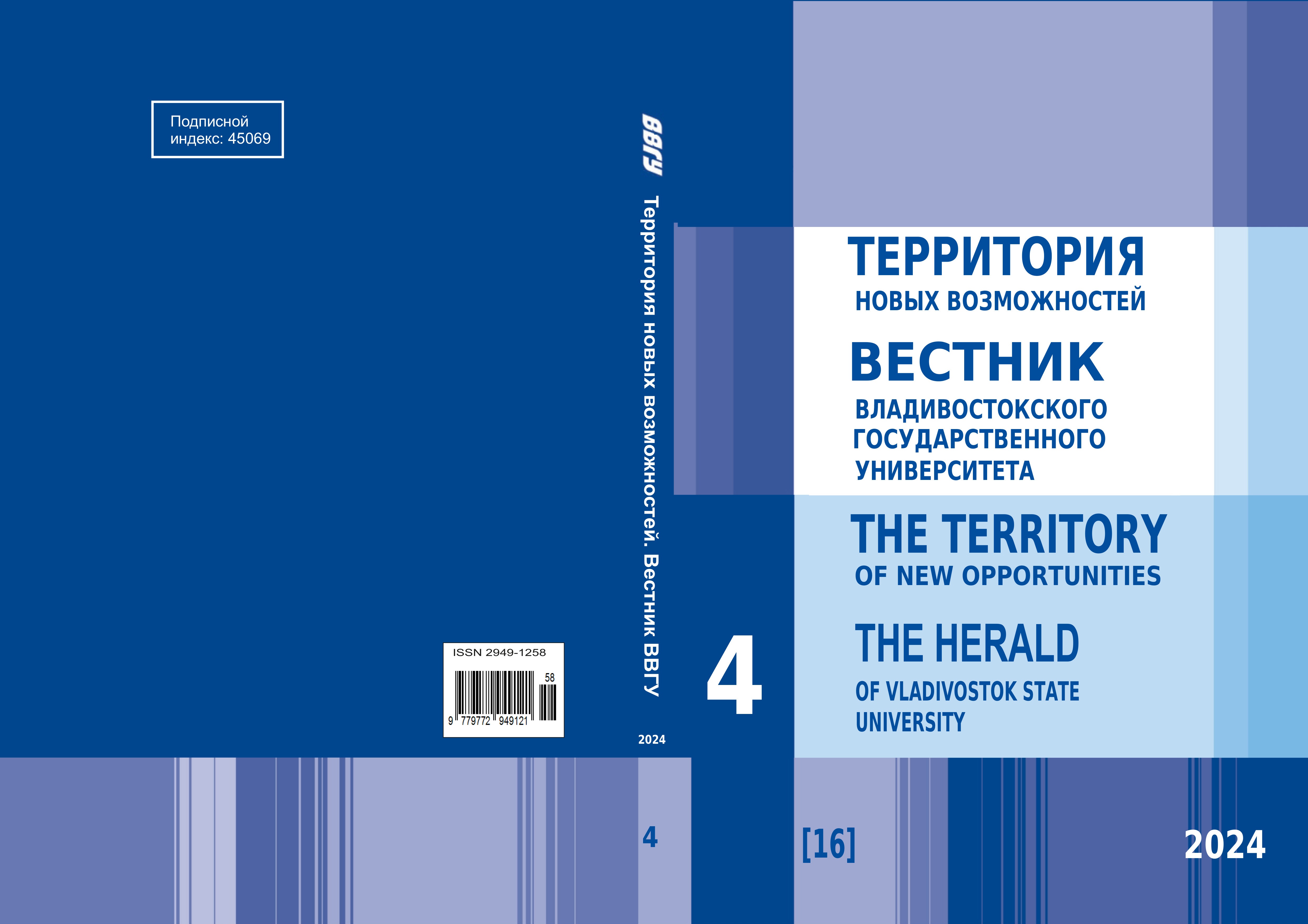employee
Vladivostok, Vladivostok, Russian Federation
The problem of the lack of data on adolescent motivation is discussed in the context of the interrelationships of fundamental existential motivation and school motivation in conditions where motivation is viewed as a means of manipulation. The goal of clarifying the psychological features of the interrelationships of existential motivation and school motivation of a teenager has been set and achieved. The author's view of motivation as an internal resource, rather than an external incentive, is presented. Within the framework of the theoretical analysis, the age-related features of personality development, leading activities in the context of motivation are shown. The results of impaired development of adolescent motivation are described, such as infantilism and weaponized incompetence. An empirical study was conducted on a sample of N = 76 schoolchildren aged 14–15. Research methods – the test of school motivation by V. Hennig and the TEM method – the test of existential motivations by A. Langle (Shumsky et al.) The results of the comparison of existential fundamental motivations (A. Langle's existential analysis) and the detailing of educational motives (V. Hennig) are presented. The data of the correlation analysis showed a close relation of the existential and educational motives of adolescents. However, each fundamental existential motivation is connected with school motives in a special way, revealing the essence of the inner source of the teenager's personality, rather than external stimulation.
teenagers, school motivation, existential motivation, interrelation, internal dialogue, age characteristics
1. Krivtsova S.V. Self, me and person: three aspects of a developing personality in existential analysis. Psychological problems of the meaning of life and acme: Electronic collection of materials from the XXIII International Symposium (Moscow, April 11–12, 2018). Moscow: Psychological Institute of the Russian Academy of Education; 2018. P. 25–40. EDN: https://elibrary.ru/XSEBLV
2. Obukhova L.F. Child psychology: theories, facts, problems. Moscow: Trivola; 1998. 351 p.
3. Kraig G. Developmental psychology. St. Petersburg: Peter; 2000. 992 p.
4. Berezhnova D.B., Ponomarenko E.A. Factors in the formation of the learned helplessness of a teenager. Scientific and methodological electronic journal "Concept". 2016; (24): 23–27.
5. Mitin G.V. The influence of negative psycho-emotional states of the teacher on the behavior and states of students. Psychology of human conditions: current theoretical and applied problems: Sat. mater. IV All-Russia. scientific. conf. with international participation (Kazan, November 08–10, 2023). Kazan: Publishing House of FSAEI HPE "Kazan (Volga) Federal University"; 2023. P. 416–421. EDN: https://elibrary.ru/MWOGBA
6. Vygotsky L.S. Psychology of human development. Moscow: Eksmo; 2006. 1136 p. EDN: https://elibrary.ru/QXPJBZ
7. Lebedinsky V.V. Mental development disorders. Moscow: Academy; 2006. 144 p. EDN: https://elibrary.ru/QXPRIZ
8. Polyakova I.V. Psychological features of the relationship between the level of development of social intelligence and mental infantilism of adolescents. Issues of mental health of children and adolescents. 2023; 23 (2): 29–37. EDN: https://elibrary.ru/LQBIUM
9. Petrenko E.A., Mitrukhin S.V. Social infantilism as a social problem. Bulletin of Khakass State University named after N.F. Katanov. 2023; 4 (46): 101–105. EDN: https://elibrary.ru/YOZYVG
10. Grachev V.V., Popova L.A., Enikolopov S.N. Biopsychosocial approach to the problem of mental infantilism in adolescents. Siberian Psychological Journal. 2012; (43): 30–38. EDN: https://elibrary.ru/OWHBAP
11. Actual problems in the field of psychological health of students: the challenge of the COVID-19 pandemic / O.V. Volkova, O.A. Tsvetkova, A.Yu. Shadrina, A.V. Rupeka. Bulletin of Kemerovo State University. 2021; 23 (3 (87)): 661–672. DOIhttps://doi.org/10.21603/2078-8975-2021-23-3-661-672. EDN JLXXSN
12. Langle A. Existential analysis of freedom. On the practical and psychotherapeutic justification of personal freedom (Part 2). Consultative psychology and psychotherapy. 2019; 27 (1): 119–139. DOI:https://doi.org/10.17759/cpp.2019270108 EDN: https://elibrary.ru/OZLEKE
13. Krivtsova S.V. Challenges of uncertainty and the formation of the inner strength of the personality in the process of ontogenesis (existential-analytical approach). Psychological research. 2015; 8 (40): 8.
14. Popova T.A. Existential component of the I-concept of a teenager: theory and practice of research. Psychology of the meaning of life: school of V.E. Chudnovsky. Moscow; 2021. P. 284–294.
15. Gordeeva T.O., Sychev O.A. Strategies of self-motivation: the quality of internal dialogue is important for well-being and academic success. Psychological science and education. 2021; 26 (5): 6–16. DOI: https://doi.org/10.17759/pse.2021260501; EDN: https://elibrary.ru/QJLXRC
16. Kochunene Yu. Existential view of the "difficult" teenager: the possibility and space for therapeutic changes. Moscow Psychotherapeutic Journal. 2002; (3): 89–95.
17. Hennig Werner. Lernmotive bei Schülern (Psychologische Beiträge. Heft 23).Volk und Wissen Volkseigener Verlag. Berlin; 1978. 96 p.
18. Leaders A.G., Hennig V. Motives of teaching schoolchildren. Questions of psychology. 1980; (1): 161, 162.
19. Diagnosis and correction of social maladjustment of adolescents: a manual for psychologists, teachers, psychosocial and social workers under the editorship of S.A. Belicheva. Moscow: Editorial and Publishing Center of the Consortium "Social Health of Russia"; 1999. 115 p.
20. Diagnosis of existential fulfillment: the original Russian-language version of the test of existential motivations Psychology / V.B. Shumsky, E.M. Ukolova, E.N. Osin, Y.D. Lupandina. Journal of the Higher School of Economics. 2016; 13 (4): 763–788.- DOI: https://doi.org/10.17323/1813-8918-2016-4-763-788; EDN: https://elibrary.ru/XWOPPZ
21. Malakhova V.R., Chernyavskaya V.S. Self-disclosure of the abilities of a teenager: from parental relations to academic success. Vladivostok: Marine State University; 2023. 187 p. ISBN 978-5-8343-1251-2. EDN SRPTEK





